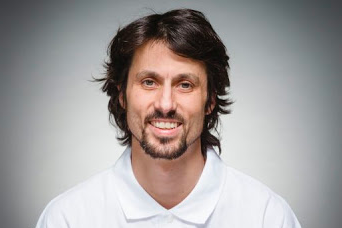Interview: Olivier Maloberti, ESSIAL Coordinator
Olivier Maloberti is the scientific coordinator of ESSIAL. He explains here what ESSIAL is all about and what impact is expected for the European industry.
Q: Olivier, what are the main goals of ESSIAL?
ESSIAL stands for Electrical Steel Structuring, Insulating, and Assembling by means of the Laser technologies. The ambition of the project is to reduce the energy losses, the acoustic noise and the global cost of products composed of electrical steels (such as motors, transformers or inductors that are ubiquitous in the manufacturing industry). Moreover, we want the improved electrical steels to be eco-friendly (no emission of pollutant during their working life and fulfillment of the REACH regulation) and made of materials that are easy to recycle.
Q: But why is it important to improve electrical steels?
The metallurgy industry uses more and more soft magnetic materials to manufacture electrical steels. These soft magnetic materials maximize power density but they also cause energy losses (called iron losses in addition to copper and mechanical losses) and noise (due to induced stresses and vibrations). According to a report issued by Market & Markets, the global soft magnetic material market was valued at 18.02 billion US dollars in 2015 and is projected to reach 28.15 billion dollars by 2021 at an annual growth rate of 7.8%. This important growth in the demand of soft magnetic materials calls for a quick improvement of the performance and functionalities of laminated soft magnetic circuits to reach the objectives of the energy transition agenda. The ESSIAL technology has thus the potential to provide a significant economic impact at world level. We have calculated that a single % of iron loss corresponds to more than 18.7 k€ per hour (calculation done with approximately 5M tons, i.e. less than 20% of materials used all the time). It is approximately the electricity bill of 11 000 households and the turnover per year of an entire economical sector (164 M€). The whole excess loss costs more than 280 k€ per hour. It corresponds to the electricity bill of at least 170 000 households.
Q: How are you going to proceed?
To achieve this, we need to define the optimal parameters for the steel manufacturing process including the laser texturization process, and also for the insulating coating and assembling parts. This will be done in the first three years of ESSIAL thanks to a collaboration between academic partners (ESIEE Amiens, Université Picardie Jules Verne, Universidad Carlos 3 de Madrid) and four research centres specialized in metallurgy (CRM group and IRT M2P), in laser technology (Multitel) and plastics (Andaltec). When these parameters are defined, we will be able to test their performances on several prototypes (two power inductors, one transformer, one rotating electrical machine) to be developed in collaboration with two end-users companies: SEPSA (Spain) and Jeumont Electric (France). But the project is even more ambitious than that. The possibility to scale-up the ESSIAL technology is taken into account from the very beginning. A specific task of the project is to demonstrate that the laser processes and associated monitoring solutions developed in ESSIAL can be economically scaled up for mass production into existing production lines, with a cost increase limited to 10% of the cost of conventional products. This task will be carried out mainly by the Fraunhofer institute and Lasea, a Belgian company specialized in Lasers and texturization processes.
Q: What will be the added value for the European industry?
The companies in the consortium will be the first beneficiaries of the project. SEPSA and Jeumont, the end-users companies in the project will benefit from a better efficiency of their products, giving them an advantage on the most competitive markets. The LASEA company, which is specialized in the manufacturing of laser industrial systems will have the possibility to commercialize new machines with the ESSIAL technology embedded. Moreover, large metallurgy groups will gain knowledge in this particular area of electrical steels. But we also expect to promote our technology to other European companies. The partner MATIKEM (a cluster based in France) is carrying out a continuous market survey to determine what companies could be interested by our findings (taking into account the necessary adaptation of the technology to their specific needs). In addition, several workshops are already planned to engage with industrial partners for the exploitation of the results.


